1. science should be driven by knowledge
1.1. Scientific methods: Hypotheses, experiments and hence conclusions All these examine the physical world and do not involve something supernatural Morality, ie certain rules or values, may have biases in the scientific conclusion
1.2. individuals should not be forced to accept an universal set of morals, i.e. moral code
1.2.1. elaboration: morality is by itself a vague idea, especially when it comes to provideing practical solutions for moral issues. therefore, morality is only practical when exercised througha a standised principle where everyone abides by, i.e. a moral code. however, such a practice should only be made mandatory in legal system and not else where, bacause each individual has different standards and perspectives of morality, which is often shaped by our past experiences and the environment that varied from person to person. certain sets of morals are only relevant on a personal level and should only be regulated and determined by individuals themselves. However, when science is driven by morality, individuals are 'forced' to adibe by the same moral code, which they may or may not agreed with.
1.2.2. example: ban on euthanasia. Individuals, when abide by the legal ban on euthanasia are 'forced' to recognize the stance that terminally ill patients who are in severe and chronic pain should not be deliberately killed.
1.2.3. reiteration: it is unjustified and unfair to map a morality system for science that binds everyone, because all individuals should have the freedom to practice his or her own moral beliefs.
1.3. morality can be defined in different ways
1.3.1. Religous morality, morality to yourself etc.
1.3.2. Moral nihilism- How can we judge whether something is moral or immoral since science has its inherent benefits and detriments
1.3.3. Example: Galileo's theory of heliocentrism was rejected by the Roman Catholic Church and the Pope in favor of their belief in geocentrism, subsequently led to his persecution by the religious hardliners due to the their apparent moral beliefs of what is spritually "correct"
1.4. Science --- arise from the curiosity of the truth of the universe, interests
1.4.1. It is counterproductive to limit scientific freedom of thought by imposing an external moral code on to a field of objective study
1.5. Science itself does not and cannot cause any harm, but rather the application of the science discovery which causes harm when it is misused. and this is often beyong the control of scientiset.
1.5.1. example: the discovery of TNT and Einstein's E=mc2 formula are later used by military to make explosives and nuclear weapons.
2. science should be driven by morality
2.1. Although societal values may limit the research scope of science, they also provide science a focus, such that the resources would not be spread only on a myriad of topics that do not have practical use to the society.
2.1.1. Example:BBC TV programme "Brainiac" gives an example of what science would become if it's unguided by moral values. Scientists may end up researching absurdly mundane matters such as if it is possible to crack a safe using main armament of a tank.
2.2. Otherwise, the pursuit of science would be potentially dangerous/harmful to mankind
2.2.1. Economically: Star Wars in 1983 by President Reagan, costing up to US$10billion a year
2.2.2. Socially: Nazi German, in an attempt to discover and gain knowledge on 'breeding' a superhuman race, experimented on the Prisoners of War, from countries that they had conquered, such as (no longer exists) Czechoslovakia.
2.2.3. Example2: World War II: Japanese scientists tortured live, healthy humans to investigate the pain threshold of humans and the effects of certain poisons.
2.2.4. Example 3: The use of the atomic bomb in the Second World War though served its purpose in ending the war with the Japanese ultimately led to the deaths of millions of innocent Japanese and set a precedence in the use of weapons of mass destruction in the world
